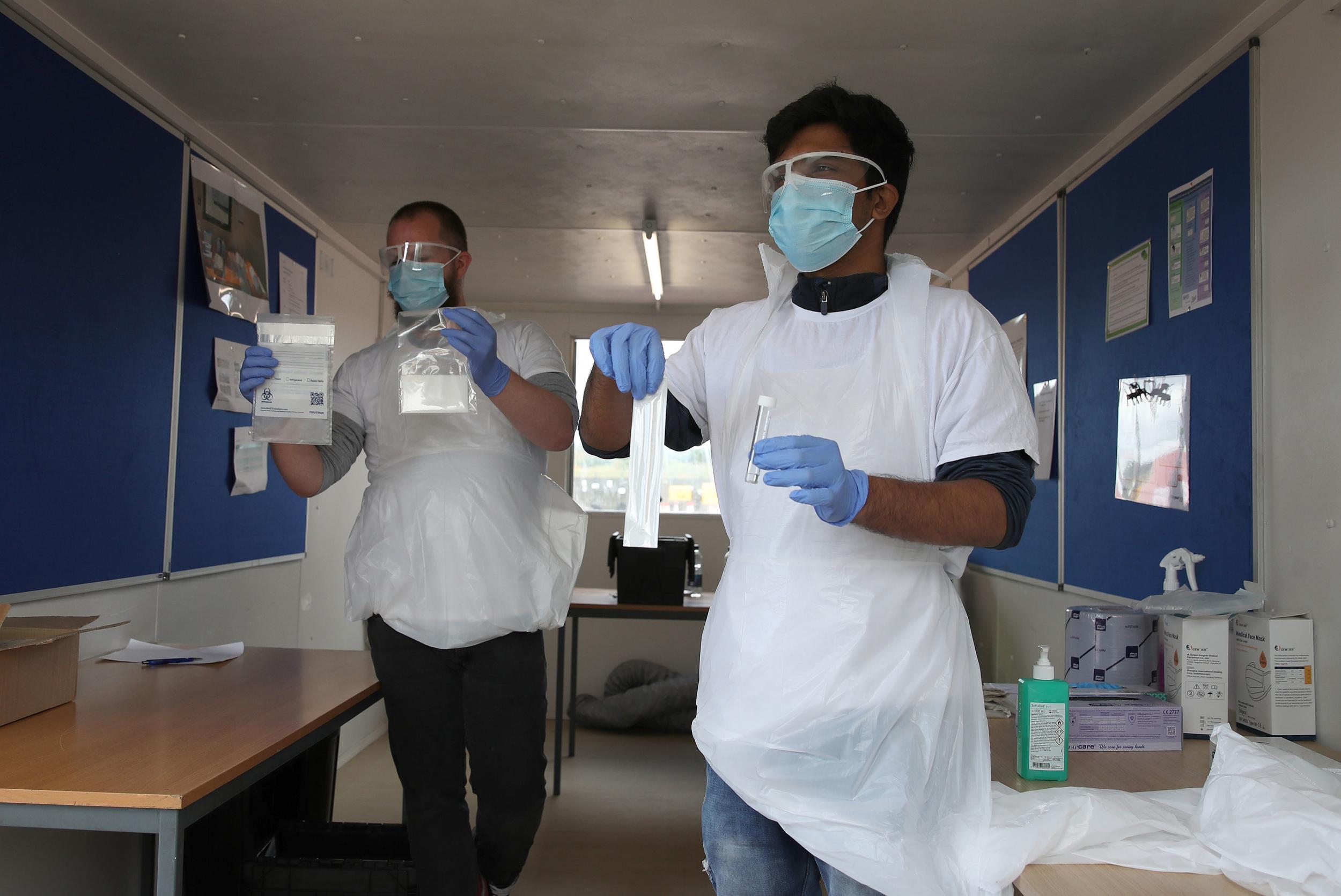Until we have the promised 'world class testing system' we are coming out of lockdown prematurely
Even with the current modest easing of the rules, the test and trace machinery may prove inadequate at dealing with the expected level of new infections, writes Sean O'Grady


A few days ago the prime minister told the House of Commons that the whole of Britain would have a “world class” coronavirus contact testing system in place by June 1st. It turns out that the country won’t even have a “world class” testing app in place on the Isle of Wight by then.
The immediate problem is obvious. If the app is not ready, the teams of tracers not recruited and trained, and the system of responsibilities not clearly allocated between public health agencies, local authorities and national government, the system will collapse.
Even with the current modest easing of the rules, the test and trace machinery may prove inadequate to the likely task of dealing with the expected level of new infections, with no margin for safety. If so, the rate of transmission of the virus will increase.
The R rate will rise dangerously above 1 in some areas, such as the North East, which will put even more stress in the testing infrastructure system and on the NHS. Anecdotal and survey evidence suggests more young people are disregarding some of the social distancing protocols.
Even without reopening the schools fully, the dreaded second wave of infections will begin to overwhelm the system by, say, early July. With any of the proposed new early relaxations of the lockdown scheduled for June 1st – an arbitrary date – the risks of that second wave will be multiplied. As Keir Starmer has pleaded, the UK has a “huge hole” in its Covid-19 defences. Even now the authorities have only the haziest notion of how many people have had Covid-19, and the signs are it is way below the levels needed for herd immunity.
In such circumstances the advice of the Scientific Advisory Group for Emergencies (Sage) should be unequivocal – no relaxation of lockdown before the app and the rest of the testing system has been sorted out. The target date of June 1st has no basis in science, and ministers must be told in unequivocal terms that it does not, and that there is no scientific case for easing the lockdown, under the very terms of the government’s own five “principles” for a change in the rules.
If ministers are seeking scientific cover from Sage for a political decision they should be firmly rebuffed. In their rush – understandable in a way – to return the economy swiftly to normal and demonstrate progress and competence to the public they risk having to slam on the brakes and order an emergency “Level 5” lockdown at the height of the summer.
Such stark realities have already been alluded to, as gently as she could, by the Deputy Chief Scientific Advisor, Dame Angela McLean, who said changes should only be made on “observed levels of infection... and not of a fixed date”.
In fairness, it is true that the UK avoided the worst possible scenario looming a few weeks ago. Amid shortages of everything, mixed messages from government and a pitifully poor IT effort, the NHS was not as overwhelmed as the health system in Lombardy was. The lockdown was successful. Some people, generally more on the Eurosceptic right, are impatient to end the restrictions on normal life, and cite markedly lower infection and death rates to make their case, as well as the economic cost of lockdown.
Yet that is like a skydiver noting the smoothness of their descent to earth as reason enough to conclude that their parachute is no longer needed and can be safely dispensed with. In reality the NHS is not much more ready to deal with a second wave of this pandemic than it was the first one. The damage to the economy as well as the loss of life is too grisly to contemplate.
Some people in Downing Street know from traumatic personal experience what it means to underestimate the coronavirus. No working app; no adequate testing infrastructure; continuing shortages of protection and ventilators; vulnerable care homes: it’s not worth the risk.
Join our commenting forum
Join thought-provoking conversations, follow other Independent readers and see their replies
Comments